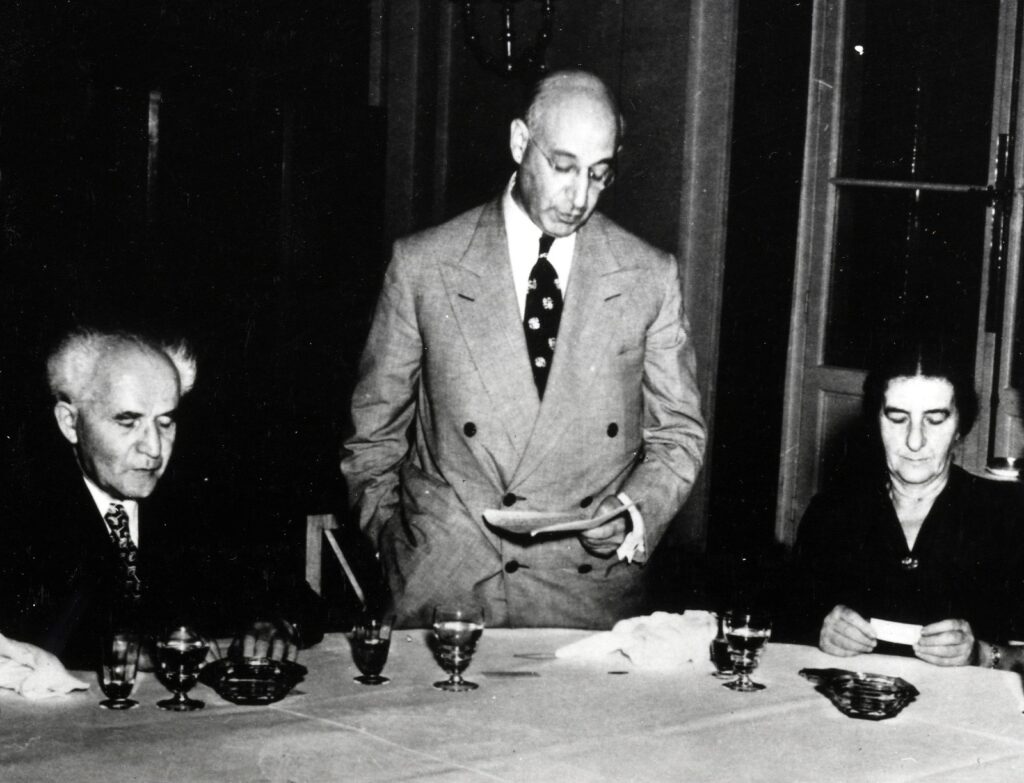February 11, 1995
Out of concern over a growing gulf between the two largest Jewish communities in the world as well as the realities of a more economically stable Israel, the Board of Governors of the American Jewish Committee adopts a new Policy Statement on Israel-Diaspora Relations.
The first agreement between the AJC and the State of Israel occurred in 1950 after a series of correspondence between AJC President Jacob Blaustein and Israeli Prime Minister David Ben-Gurion. The emphasis of the Blaustein-Ben-Gurion agreement was that Israel would not do anything to interfere with American Jewry, attempt to serve as an authority for world Jewry, question the political allegiance of American Jews for the United States or call for large scale immigration of American Jews to Israel. For his part, Blaustein agreed that American Jews would continue to support Israel but not interfere in internal Israeli politics or policy. This agreement was reaffirmed in 1956 and in 1961.
The new policy seeks to build on the changing relationship between American Jews and the State of Israel and move forward from the traditional relationship that was built on politics, philanthropy and immigration. Recognizing that the “overwhelming majority of American Jews have indicated they prefer to remain in the US,” and concerned over a weakening attachment to Israel, the new policy addresses 12 issues in regard to Israel-Diaspora relations.
It specifically calls for greater interdependence in matters of Jewish continuity including Jewish education, bringing Diaspora Jews to visit Israel and continuing American Jewish philanthropic support for Israel.
The complete 1995 document can be found here.









